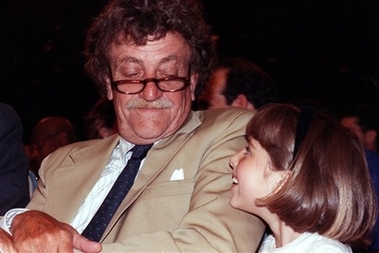Novelist Kurt Vonnegut dies at age 84
(AP)Updated: 2007-04-12 15:45
NEW YORK - Kurt Vonnegut, the satirical novelist who captured the absurdity of war and questioned the advances of science in darkly humorous works such as "Slaughterhouse-Five" and "Cat's Cradle," died Wednesday. He was 84.
The author of at least 19 novels, many of them best-sellers, as well as dozens of short stories, essays and plays, Vonnegut relished the role of a social critic. Indianapolis, his hometown, declared 2007 as "The Year of Vonnegut" - an announcement he said left him "thunderstruck."
He lectured regularly, exhorting audiences to think for themselves and delighting in barbed commentary against the institutions he felt were dehumanizing people.
"I will say anything to be funny, often in the most horrible situations," Vonnegut, whose watery, heavy-lidded eyes and unruly hair made him seem to be in existential pain, once told a gathering of psychiatrists.
A self-described religious skeptic and freethinking humanist, Vonnegut used protagonists such as Billy Pilgrim and Eliot Rosewater as transparent vehicles for his points of view. He also filled his novels with satirical commentary and even drawings that were only loosely connected to the plot. In "Slaughterhouse-Five," he drew a headstone with the epitaph: "Everything was beautiful, and nothing hurt."
But much in his life was traumatic, and left him in pain.
Despite his commercial success, Vonnegut battled depression throughout his life, and in 1984, he attempted suicide with pills and alcohol, joking later about how he botched the job.
"I think he was a man who combined a wicked sense of humor and sort of steady moral compass, who was always sort of looking at the big picture of the things that were most important," said Joel Bleifuss, editor of In These Times, a liberal magazine based in Chicago that featured Vonnegut articles.
His mother killed herself just before he left for Germany during World War II, where he was quickly taken prisoner during the Battle of the Bulge. He was being held in Dresden when Allied bombs created a firestorm that killed an estimated tens of thousands of people.
"The firebombing of Dresden explains absolutely nothing about why I write what I write and am what I am," Vonnegut wrote in "Fates Worse Than Death," his 1991 autobiography of sorts.
But he spent 23 years struggling to write about the ordeal, which he survived by huddling with other POW's inside an underground meat locker labeled slaughterhouse-five.
The novel, in which Pvt. Pilgrim is transported from Dresden by time-traveling aliens from the planet Tralfamadore, was published at the height of the Vietnam War, and solidified his reputation as an iconoclast.
"He was sort of like nobody else," said Gore Vidal, who noted that he, Vonnegut and Norman Mailer were among the last writers around who served in World War II.
"He was imaginative; our generation of writers didn't go in for imagination very much. Literary realism was the general style. Those of us who came out of the war in the 1940s made it sort of the official American prose, and it was often a bit on the dull side. Kurt was never dull."
Vonnegut was born on Nov. 11, 1922, in Indianapolis, a "fourth-generation German-American religious skeptic Freethinker," and studied chemistry at Cornell University before joining the Army.
When he returned, he reported for Chicago's City News Bureau, then did public relations for General Electric, a job he loathed. He wrote his first novel, "Player Piano," in 1951, followed by "The Sirens of Titan," "Canary in a Cat House" and "Mother Night," making ends meet by selling Saabs on Cape Cod.
Critics ignored him at first, then denigrated his deliberately bizarre stories and disjointed plots as haphazardly written science fiction. But his novels became cult classics, especially "Cat's Cradle" in 1963, in which scientists create "ice-nine," a crystal that turns water solid and destroys the earth.
Many of his novels were best-sellers. Some also were banned and burned for
suspected obscenity. Vonnegut took on censorship as an active member of the PEN
writers' aid group and the American Civil Liberties Union. The American Humanist
Association, which promotes individual freedom, rational thought and scientific
skepticism, made him its honorary president.
| 1 | 2 |  |
|
||
|
||
|
|

